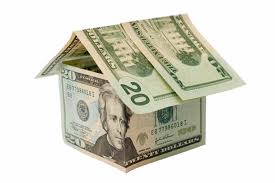 Florida’s Homestead protections have been extended to non-U.S. citizens. Indeed, the Florida Supreme Court has extended the benefits of Florida’s homestead provisions to people who are not United States citizens or permanent residents. Florida’s homestead provisions give homeowners in Florida crucial benefits such as a reduction in the value of homestead real property for the purposes of property tax. These provisions also allow homeowners some protection against creditors. Specifically, creditors cannot force sale or acquire the homeowner’s property as part of the debt collection process. Tax debts are still exempt from the benefits of the homestead provisions.
Florida’s Homestead protections have been extended to non-U.S. citizens. Indeed, the Florida Supreme Court has extended the benefits of Florida’s homestead provisions to people who are not United States citizens or permanent residents. Florida’s homestead provisions give homeowners in Florida crucial benefits such as a reduction in the value of homestead real property for the purposes of property tax. These provisions also allow homeowners some protection against creditors. Specifically, creditors cannot force sale or acquire the homeowner’s property as part of the debt collection process. Tax debts are still exempt from the benefits of the homestead provisions.
In the past the benefits stemming from Florida’s homestead provisions were solely for permanent residents and United States Citizens who own their principal residence in Florida.
However, non U.S. citizens and non permanent residents who own real estate in Florida that serves as the principal residence of their dependents who are United States citizens or permanent residents may secure the benefits of Florida’s homestead provisions.
For instance, Florida’s Supreme Court in Garcia v. Andonie, 101 So. 2d 339 (Fla. 2012), ruled in favor of a Honduran couple attempting to claim a homestead exemption despite the fact that they were not lawful residents of the U.S. Florida’s high court concluded that the couple could take advantage of Florida’s homestead exemptions because the couple resided in the home with their three minor children. Since the three minor children were U.S. citizens, as well as the legal dependents of the property owners, i.e. the non-resident Honduran couple, and the home was being used as a principal residence since the Honduran couple could lawfully reside in the U.S., the court concluded that they could receive the benefits of qualifying for the homestead exemption.
In essence this means that people who are not U.S. citizens or permanent residents, but who have dependents such as young children that are U.S. citizens, or permanent residents, and that live in that residence as a primary residence, can take full advantage of Florida’s homestead provisions. Ways in which they can prove that this is a primary residence is where the children are registered for school, bank statements, and even utility bills.

